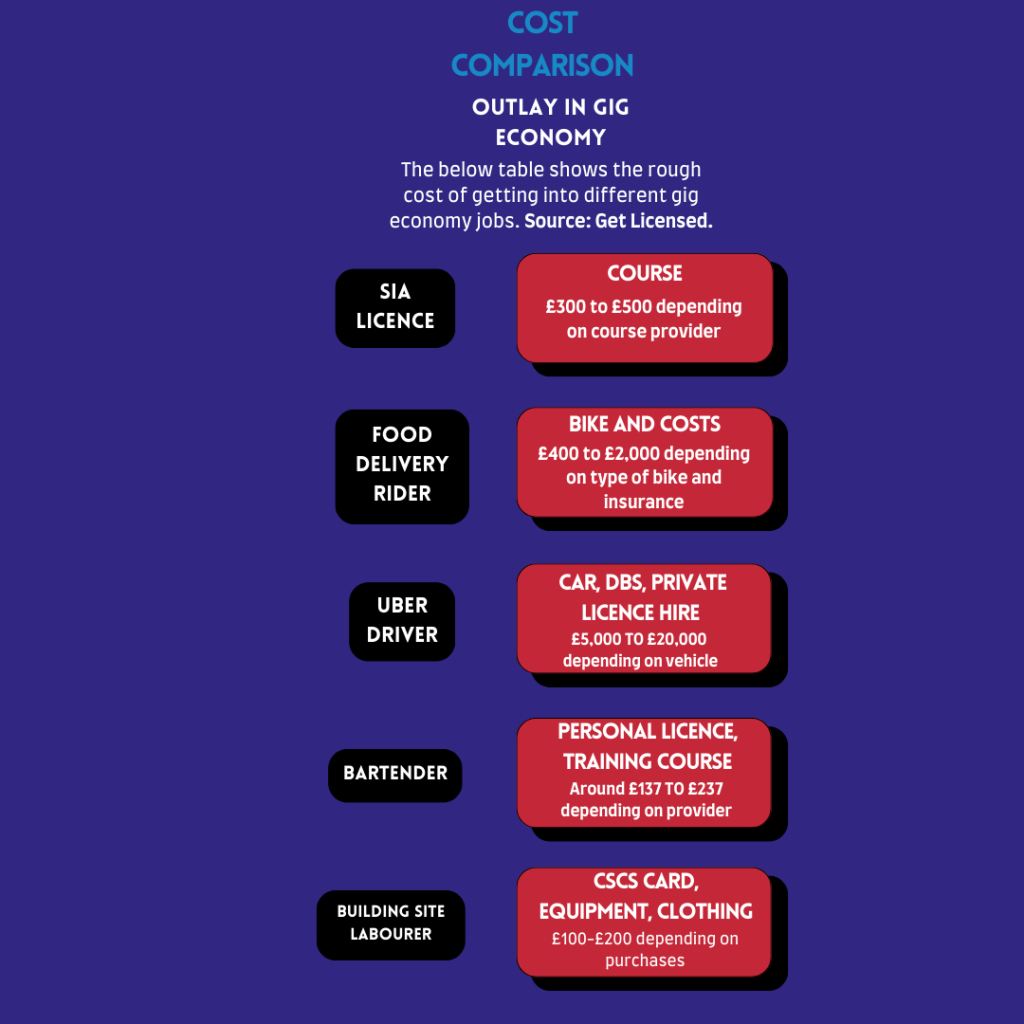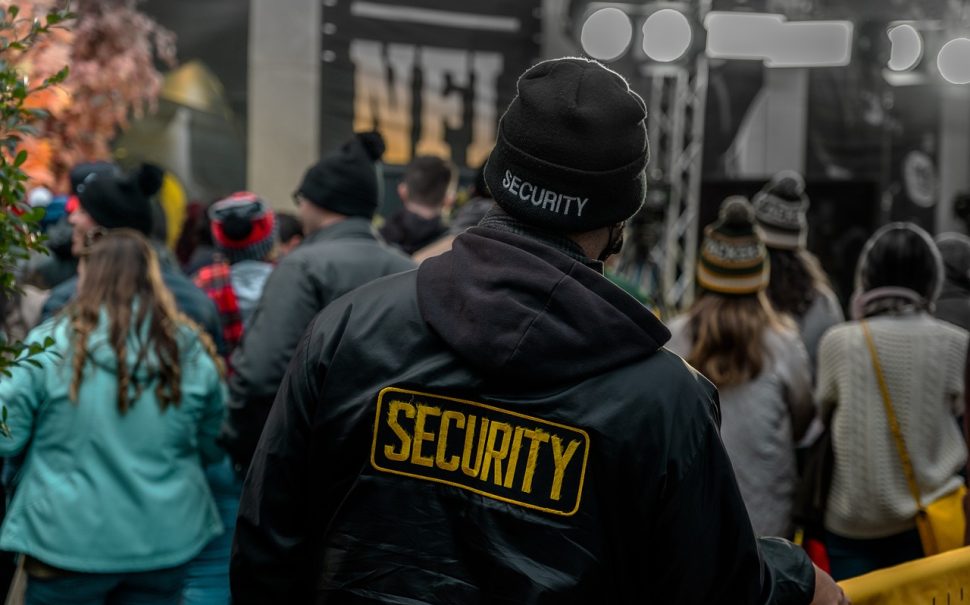The faces of the British security workforce are rapidly changing, according to data released by the Security Industry Authority (SIA), as the sector strives to reflect modern society.
The workforce is getting younger, more culturally diverse and increasingly female as people from different demographics continue to take up licences in the growing security industry during difficult economic times.
Jo – not her real name – is a security guard at a government building in central Manchester, and she entered the industry this year after being encouraged by her husband who has worked in the sector for 16 years.
She said: “I will admit that I was absolutely terrified when I first started.
“My husband told me some stories which were quite exciting so I was a bit worried, but I’ve since realised that I have a good team around me and I love my job.
“I know from talking to other people who I trained with that it is becoming an attractive option for people wanting a steady income.”
She said she became a security guard because she was looking for an easy way to get back into the workforce after raising her children.
Jo added: “I’m just kicking myself that I didn’t get into this as a career earlier because I really enjoy it.”
According to a study by the SIA issued on the Gov.uk website, the number of security licences issued has gone from 365,226 to 440,816 in the last four years – a rise of over 20% as demand increases.
In Manchester, the number of people licensed in security rose from 20,914 at the end of 2020 to 30,579 this November – a growth of 46.2%.
The number of women who possess a security licence has grown by almost 30% in four years
An average of 54 new women are getting a SIA licence per week in the UK – numbers have increased from 37,205 in 2020 to 48,187 in 2024, a growth of 29.5%.
The number of men with security licences increased by 64,608 in the same period, rising to 392,629 – a slower growth rate of 19.7%.
The SIA is the regulator of the private security field in the UK – responsible for issuing licences to individuals, setting standards for training, ensuring the conduct of licence holders is professional and accrediting security companies under its Approved Contractor Scheme.
Speaking to Mancunian Matters, an SIA spokesman said: “Every day thousands of women across the country play an important role to keep people safe.
“This industry is now made up of people from a range of backgrounds, bringing with them a range of experiences that can prove invaluable in their roles.”
Security licences are increasingly being seen as a part of the ‘gig economy’
The steady growth of the industry is enabling more people from many different backgrounds to seek employment in the profession across a full-time, part-time or casual basis.

Harmain Sualeh is a security industry expert who does work for companies such as GuardPass and Get Licensed.
He wrote on industry website Get Licensed that a security licence is more cost effective than other gig economy options.
“Security work offers a balanced entry cost compared to other jobs,” wrote Harmain.
“The SIA licence is valid for three years, providing excellent long-term value.
“Meanwhile, jobs like Uber driving or food delivery can come with recurring costs like vehicle maintenance and insurance, making them more expensive in the long run.”
These factors make the security industry an attractive option for students and people new to the country or those who want some supplementary income during the cost-of-living crisis.
The private security field features jobs as varied as security guards, door supervisors, close protection officers, and CCTV operators which gives those seeking a licence many different employment options.
The security industry is becoming younger
There has been a spike in younger people taking up licences in the industry with the amount of 18-year-olds quadrupling and the number more than doubling for those a year or two older.
On the opposite end of the scale there has been a steady decline with licence holder numbers falling as people get older.
The below graph demonstrates the difference in 2020, 2022 and 2024 of the ages of those who have held their security licence and how the age demographics have changed during this period.
The 18-30 demographic experienced the greatest growth with a 77.3% increase over the last four years.
The 31-45 and 61-75 demographics experienced modest increases of 11.7% and 10.8% respectively, while the 46-60 age group suffered a slight decline of 3.8%.
The nationalities of licence holders are significantly changing
There are 16,558 fewer British licence holders than there were four years ago as people of other nationalities including Pakistanis, Indians and Nigerians gain more security licences to answer demand.
Despite the small 6.5% decrease in British licence holders since 2020, they are still the largest demographic licenced in the industry with a total of 241,448 as of November 2024.
Pakistani licence holders have experienced the highest growth in terms of numbers – more than quadrupling from 13,717 in 2020 to 59,953 in 2024.
The number of Nigerian licence holders more than doubled from 9,187 to 23,768 during the same period.
The biggest change in terms of individual growth for a nationality were Indian licence holders whose numbers increased more than eightfold from 2,742 to 23,108.
British licence holders weren’t the only ones to face a decline in the last four years with Italian licence holders falling from 8,310 to 7,883 – despite a peak of 9,960 in 2022.
Polish licence holders also fell with a steady decline from 5,536 to 4,436 – a drop of 20%.
The graph above shows the breakdown of licence holders by nationality, with the top 10 nationalities of licence holders alongside the Other category representing all other nationalities - the growth of this category over the four years indicating an increasing diversity in the sector.
A spokesman from the SIA added: "A more diverse workforce is one better served to protect the people it reflects.
"As set out in our 2023-26 strategic plan, we are committed to supporting the private security industry’s aims on improved equality, diversity and inclusion to enable it to attract talent and understand the needs of the public it works to protect."
Feature image by Michael_Gorduz under creative commons licence. Pixabay




